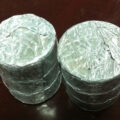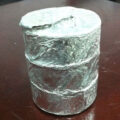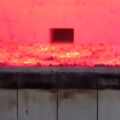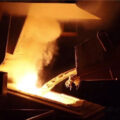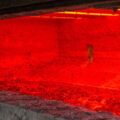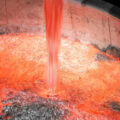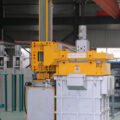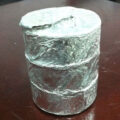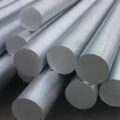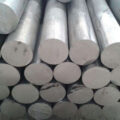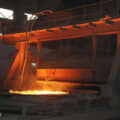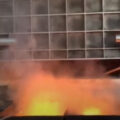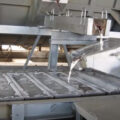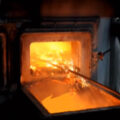One or more grain refiners will be included in the aluminum alloy composition. Grain refiners are well-known pre-alloyed materials, usually in the form of solid rods or wires, which are continuously added to the casting stream or aluminum alloy melt to obtain the desired fine grain size during solidification. Reagents that promote grain refinement of aluminum include transition metals such as Ti and Zr; metals such as Sr; and nonmetals added to molten metals, such as B and C. The optimum grain refiners are Ti, Zr, B, and C.
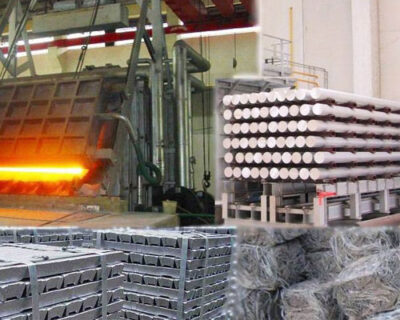
It is well known in aluminum casting technology that various surface defects, such as pits, vertical folds, oxide patches, etc. formed during ingot casting, will develop into cracks during casting or subsequent processing. For example, during subsequent rolling, cracks in ingots or slabs can spread, for example, resulting in expensive repair work or complete scrap of cracked material. Most ingots are processed in some way. But work cannot cure a broken ingot. The surface defect of aluminum ingot is still a problem in the alloy field.
Some alloys are particularly susceptible to surface defects and cracking. In the past, beryllium was usually added to some of these alloys at ppm levels to control surface defects. However, beryllium has been banned for use in aluminum products for food and beverage packaging. In addition, there are growing concerns about health risks associated with factory workers using beryllium and beryllium containing products. Therefore, although beryllium is effective in controlling surface defects in aluminum ingots, appropriate alternative methods are still needed.
In the melting and casting of aluminum alloy, calcium and sodium are considered as unnecessary elements due to edge cracking. These elements are usually removed from the melt by refining flux prior to ingot casting.
A small amount of calcium was added to aluminum alloy to improve the surface properties of aluminum ingot. Calcium and up to 0.25% grain refiners (e.g. titanium borate) are added to aluminum alloys as melt together with alkaline earth metals, transition metals, rare earth metals, or other elements. The surface defects of aluminum were significantly reduced or reduced. It is surprisingly found that in more than one ingot casting technology, the addition of a small amount of these additives basically eliminates vertical wrinkles, pits, and ingot cracks. These additives also improve the appearance of the ingot, including reflectivity. As a result, ingots can be reduced or processed directly outside the casting process without first adjusting the surface by, for example, oxide scale.

